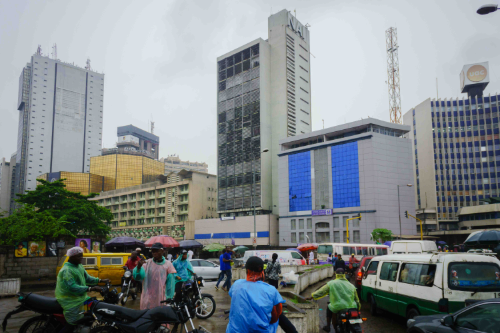Nigeria Holds Key Lending Rate at 27.5% Amid Inflation, FX Uncertainty

TLDR
- Nigeria’s central bank left its benchmark interest rate unchanged at 27.50% for the second consecutive meeting
- The Monetary Policy Committee (MPC), led by Central Bank Governor Olayemi Cardoso, voted unanimously to hold rates steady
- Food inflation is showing signs of monthly easing, and the naira has strengthened in recent weeks, driven by improved foreign exchange inflows
Nigeria’s central bank left its benchmark interest rate unchanged at 27.50% for the second consecutive meeting, as policymakers balance inflation control with economic recovery and investor sentiment.
The Monetary Policy Committee (MPC), led by Central Bank Governor Olayemi Cardoso, voted unanimously to hold rates steady, citing moderate gains in macroeconomic indicators such as exchange rate stability and slowing fuel price increases.
Food inflation is showing signs of monthly easing, and the naira has strengthened in recent weeks, driven by improved foreign exchange inflows and renewed investor confidence. Headline inflation was 23.71% in April.
Cardoso said the decision reflects cautious optimism. “Members noted the progressive moderation in food inflation and commended efforts to increase food supply and reduce insecurity in farming communities.”
Analysts expected the hold. Some warned that further tightening could hurt business activity, while premature easing risked worsening inflation. The central bank has aggressively raised rates this year. The July 21–22 MPC meeting will indicate whether policymakers continue the pause or pivot as inflation trends evolve.
Daba is Africa's leading investment platform for private and public markets. Download here
Key Takeaways
Nigeria’s monetary authorities are pausing rate hikes to evaluate their impact, but inflation pressures remain. Structural issues like elevated energy prices, FX demand, and weak export earnings continue to weigh on inflation expectations. Analysts say the CBN’s cautious stance is designed to keep foreign portfolio inflows steady by preserving interest rate differentials and currency stability. With oil prices declining, FX inflows from crude exports could soften, increasing reliance on investor sentiment to support the naira. The central bank’s position also underscores a return to conventional policy tools, moving away from past ad hoc interventions. While the pause allows time to assess policy effectiveness, future decisions will depend on inflation data and external risks, including global trade frictions. The next MPC outcome may hinge on whether current gains in currency and price levels hold, or whether underlying cost pressures force a return to rate hikes.

Next Frontier
Stay up to date on major news and events in African markets. Delivered weekly.
Pulse54
UDeep-dives into what’s old and new in Africa’s investment landscape. Delivered twice monthly.
Events
Sign up to stay informed about our regular webinars, product launches, and exhibitions.




